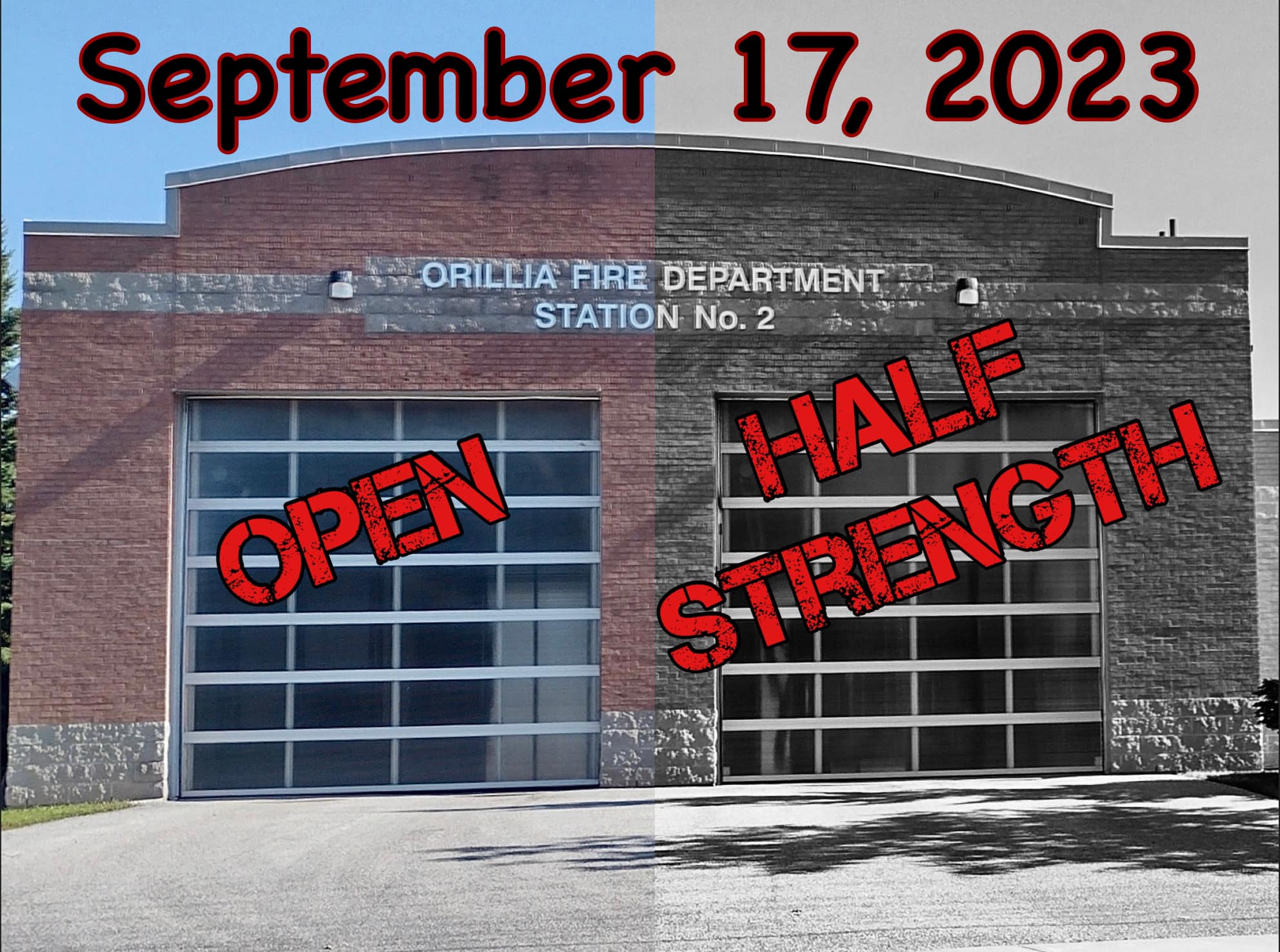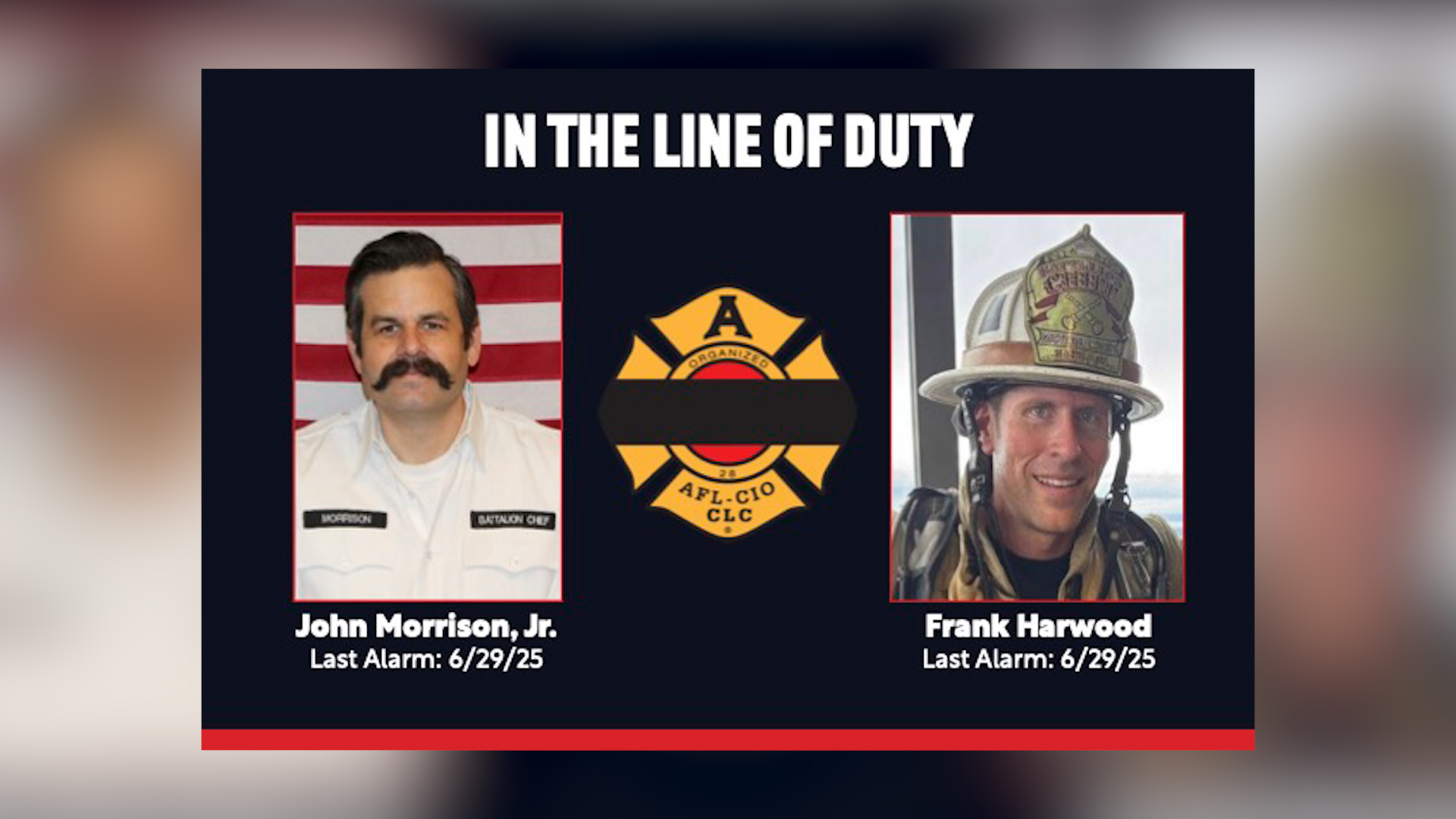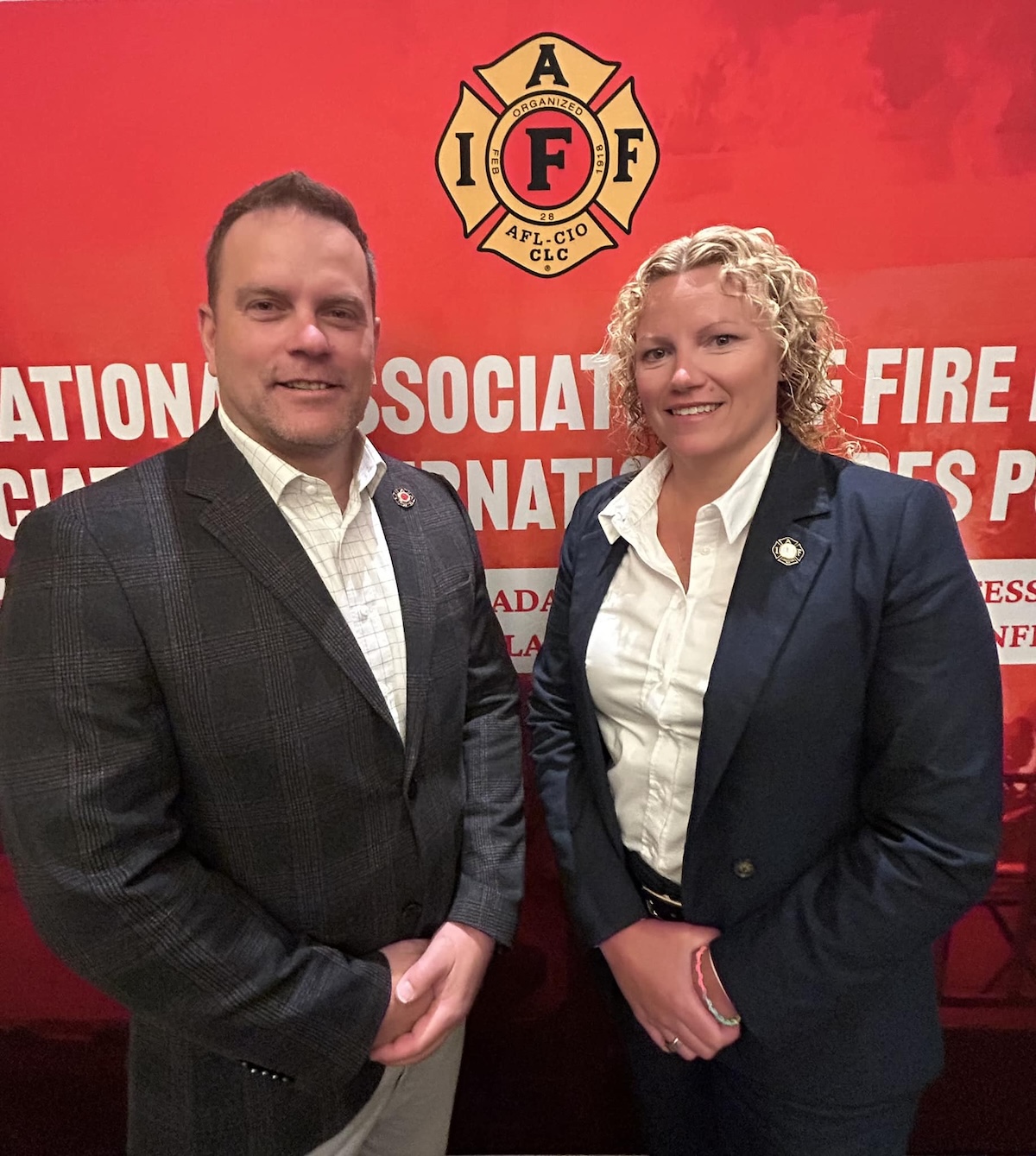
The IAFF and affiliates from across Ontario are helping Orillia Local 1100 wage a vigorous public and fire fighter safety campaign in the wake of a reckless decision by city council to close one of the city’s two fire stations when staffing shortages occur.
Since implementing a new policy in early August, the city has shuttered the north end Station 2 more than a dozen times instead of continuing a previous policy of calling in fire fighters on overtime or using temporary fire fighters to provide coverage, which it is permitted to do.
The closure can double response times in north end Orillia to 10 minutes, and response times to fires, serious medical calls, and other emergencies across the entire city of 30,000 increase significantly in the event of a simultaneous emergency where Station 1 crews are already committed. A GIS analysis conducted by the IAFF confirms that when Station 2 is closed, the number of Orillia neighbourhoods that receive a four-minute response as recommended in the NFPA 1710 Standard drops from 62 percent to 28 percent.
On Sept. 11, Local 1100 President Brett Eeles and off-duty local members were joined by 13th District Vice President Fred LeBlanc, Ontario Professional Fire Fighters Association President Greg Horton and Secretary-Treasurer Bob McCutcheon and IAFF members from across Ontario for a door-knocking blitz and flyer drop, to ensure residents in the north end of the city are aware of the significant increase in response times.
Fire fighters reported that the citizens they spoke to offered strong support for keeping Station 2 open at all times and for restoring previous response times and public safety levels. The initiative was widely covered by news media outlets from across the region.
A social media campaign titled Orillia Fire Fighters for Public Safety and Fire Protection, launched in August, has gained steady traction as residents use the platform to voice their concerns about their safety in the wake of the station closures. In media releases and on social media, the fire fighters are urging citizens to contact the mayor and their councillors to demand the emergency response levels they expect and deserve.

The fire fighters are also warning residents to exercise added caution when cooking, heating, and with other sources of ignition while ensuring they have working smoke alarms on every floor, because help may be further away if a fire breaks out in their home.
In response to the public safety campaign, the city has stated it will conduct a fire service review, which could take months or longer, and has attempted to portray the local’s objections to the station closures as a negotiation tactic, even though the local’s contract is current until the end of the year. The city has also blamed staffing shortages on the 24-hour shift, which is the most common fire fighter shift schedule in Ontario.
The staffing shortages are, in fact, a result of the city’s failure to hire new recruits and the fact a number of fire fighters are on long-term disability, including some with post-traumatic stress injuries.
LeBlanc says the public campaign is necessary to try to restore fast, effective emergency response in Orillia, and because residents whose taxes support the fire department and who depend on it for their safety have a right to know what will happen – or not – when they call 9-11 due to an emergency.
“If there’s one job a mayor and council have, it’s to keep their residents safe,” LeBlanc says, noting that the campaign will continue as long as the danger exists. “Orillia is needlessly jeopardizing public safety with this reckless decision, and we’re calling on them to set aside their new policy of station closures and work toward a solution to staffing shortages that doesn’t stand to harm citizens and their families.”
LeBlanc asked to appear as a delegation at a Sept. 11 Orillia council meeting to discuss the crisis. The city rejected his request, thus denying citizens and the media a formal public airing of the issue. Fire fighters attended the meeting as a show of support and solidarity.
In the meantime, LeBlanc firmly rejects the city’s argument that the campaign is a negotiation tactic.
“This is a public and fire fighter safety issue, period. It has nothing whatsoever to do with contract negotiations that are months away,” LeBlanc said. “It is extremely disingenuous and disappointing that the city would attempt to portray this as a labour dispute when they’re jeopardizing their citizens’ safety by making them wait twice as long for help to arrive at their door during a fire or medical emergency.”



